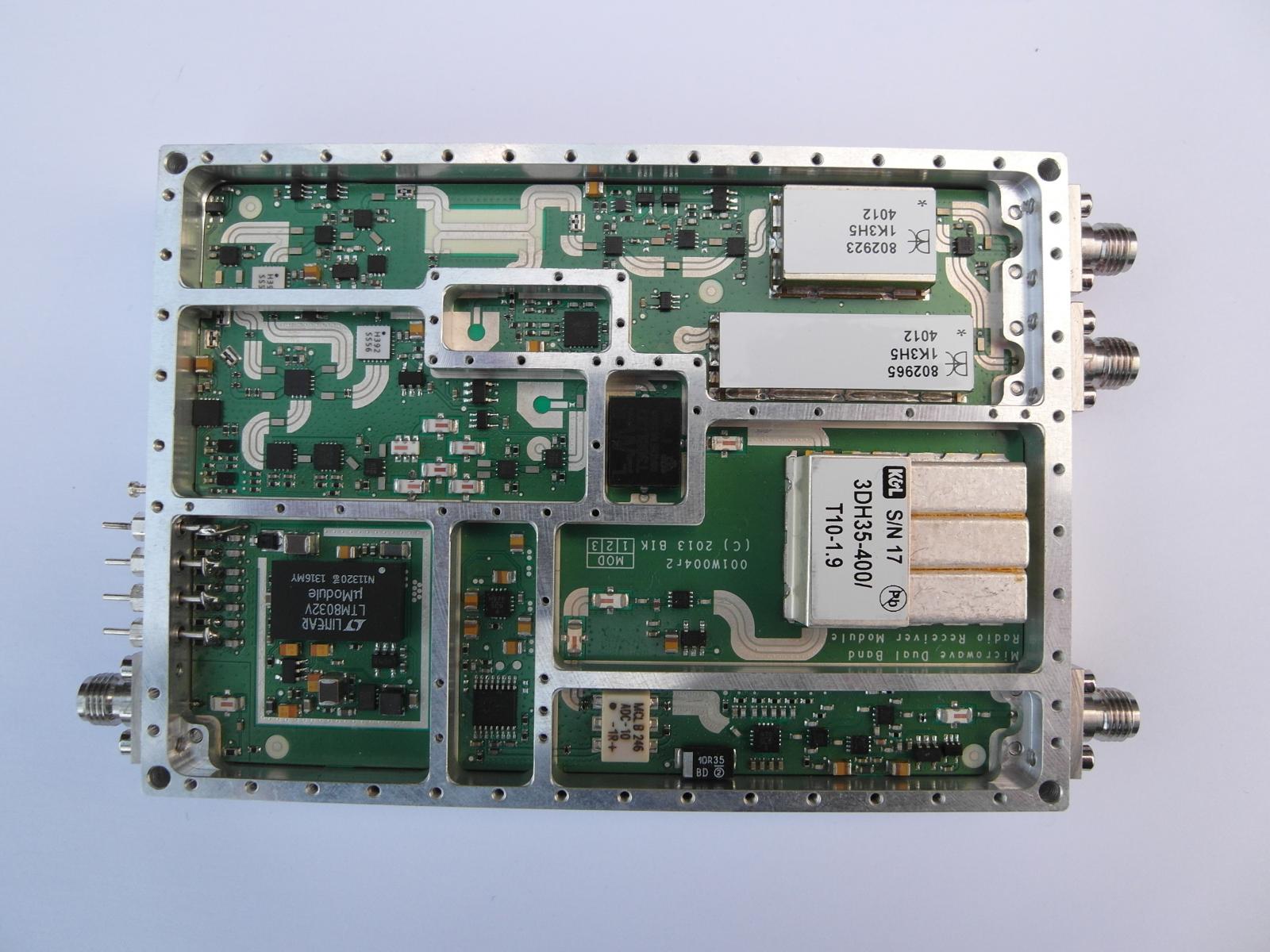
Prototype PCBs from Newbury Electronics are being used in the development of a space-borne GPS receiver.
This is the latest in a string of projects that the company has completed for Dr Ben Kieniewicz, founder and director of European Engineering & Consultancy (EECL). The design was a preliminary run to allow EECL to test the design at a fraction of the cost of using a dedicated, high reliability manufacturer with extensive experience of space hardware production.
Dr Kieniewicz, said; "We are working on several projects here at EECL. The most notable of which are a space-borne RF front end for a cutting-edge GPS receiver to give a spacecraft millimetre positioning accuracy, and a novel Analog Beam Former Network for the European Space Agency. These designs typically require a degree of prototyping to get the best possible performance and having a partner that we can rely on to keep the budget on track, and who is willing and able to correct a situation if things go wrong is extremely important. We use Newbury Electronics for all the prototype runs as they are an excellent producer of quick turnaround, quality hardware."
John Rowley, recently appointed MD, Newbury Electronics, explained more about some of the niche requirements of EECL's boards; " Many of the PCBs we produce for them use unconventional components. This includes many free issue parts - due to the requirement for batch control in the space industry it has been essential that as a supplier we have are able to adapt. A recent project required one part to be replaced due to its radiation resilience and this required fitting a leaded component to a surface mount pad. Then each part was hand solder to the board to ensure that the overall quality was not compromised."
Having a UK supplier is also important for EECL as technology import and export licenses can be time consuming and very often having products assembled outside the UK can cause problems with ITAR and US purchased parts. Dr Kieniewicz continued; "Newbury Electronics' flexible and fast turnaround service, combined with the option to generate a quotation online instantly and submit my design on a given day with the option to expedite it quicker if the need arises, are all factors in our continued work with the company. Many small components are not labelled, such as capacitors, so you must rely on the manufacturer to not mix up part lines. Over my time using them, very occasionally things have not gone as expected – however, in every case Newbury Electronics has rectified the situation even if it is at their own cost. This is important for us, as a tightly run company cannot always afford to take a hit on a subcontractor errors." EECL has also built a state of the art microwave receiver for a spacecraft, and the prototype was also assembled by Newbury Electronics.
PCBs in space
In the space industry, and especially for the European space industry, you must use specific manufacturers who have experience of producing hardware for these ultra-high reliability environments. Although Newbury Electronics does not have these ESA certifications, they produce boards to be of equivalent quality in terms of adhering to IPC standards, solder quality, placement of parts, PCB production and cleanliness of the delivered parts. In one case, a Newbury Electronics produced PCB was up-screened, which involved micro-sectioning the board to check layer to layer adhesion and production quality. The board was qualified and it eventually flew on a space mission. For European Engineering Consultancy, the prototype runs that Newbury Electronics has built for them have been essential to ensuring that the designs function as intended.
Future projects
EECL is currently working on a cutting-edge beam former for the next generation of communication spacecraft. This project will require many interface boards to allow for the control of the RF hardware. The RF electronics will use exotic PCB materials that Newbury Electronics currently does not produce, but EECL are already planning for them to assemble the necessary prototypes and build the PCBs for the interface electronics. This will allow Ben and his team to meet the tight budget deadlines and undercut the competition from the larger aerospace companies.